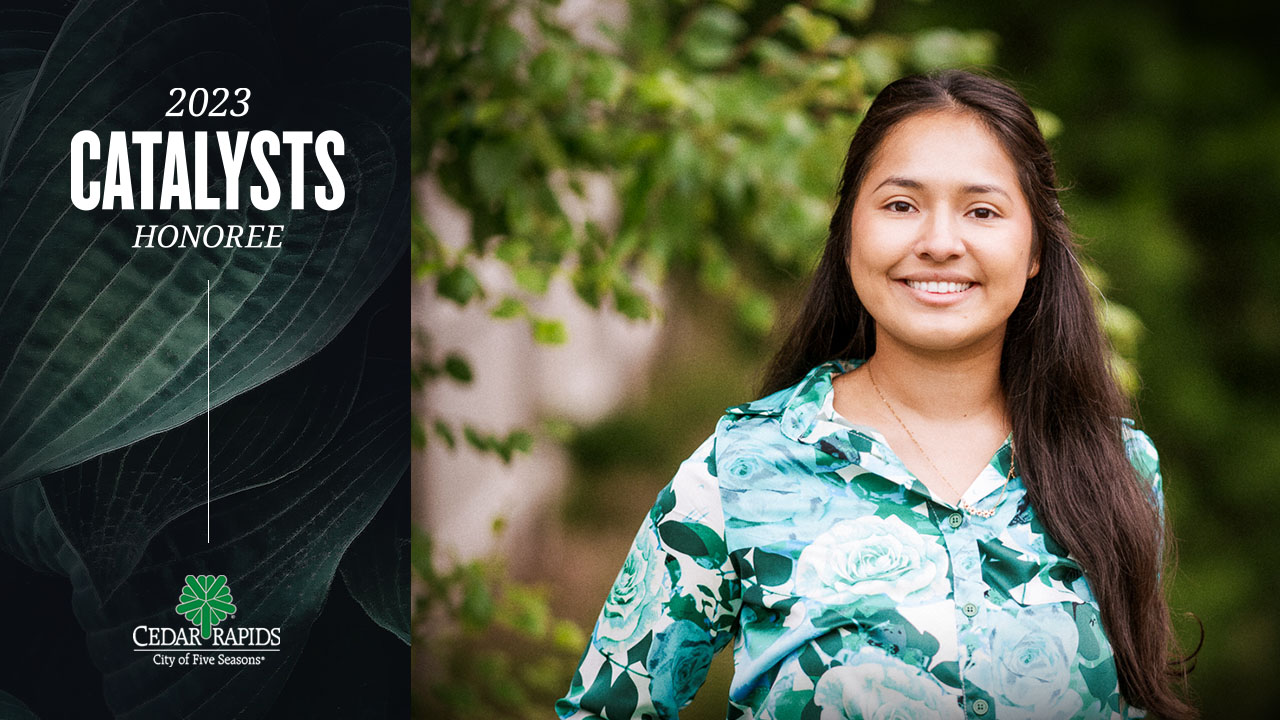
City of Cedar Rapids – 2023 Catalysts Honoree
LGBTQ+ Visibility, Inclusion and Progress
When the City of Cedar Rapids set out on their DEI journey last year, they knew they could start small. That meant sharing the importance and impact of using someone’s personal pronouns with all staff.
At the 2023 Catalysts Live event on July 18th, Elizabeth Buch (she/her) took the stage to discuss the municipality’s commitment to fostering a workplace inclusive of all marginalized groups.
She/her. He/him. They/them.
Pronouns — and sharing yours with others while correctly using others’ — have increased with awareness over the past few years. This is in part because many people whose identities do not fit the binary or whose gender doesn’t align with their sex assigned at birth face unique challenges. It’s just one of many experiences that can make them feel excluded or misunderstood.
Using the correct pronoun for someone is a way to recognize, acknowledge and accept an individual’s gender. And that you simply care.
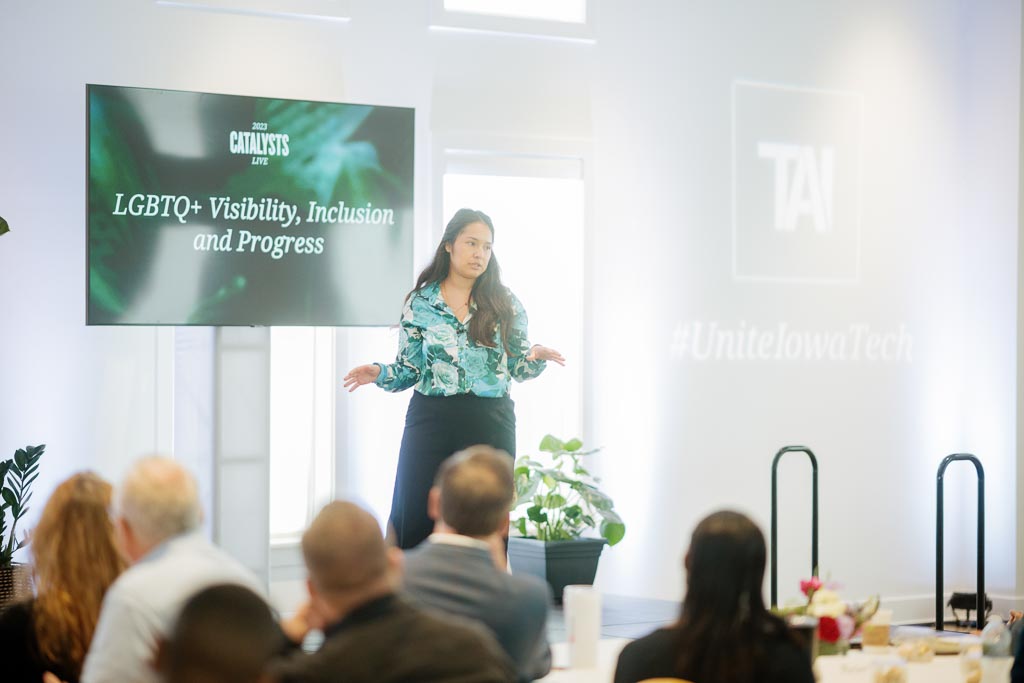
At the 2023 Catalysts Live event, Elizabeth Buch (she/her), diversity, equity and inclusion manager at the City of Cedar Rapids, kicked off her presentation by sharing her pronouns.
She then asked the audience, “Have you considered why people share their pronouns and when we started?”
It’s a simple question, but one that caused people to pause.
Buch shared that the question was part of a big conversation the City of Cedar Rapids workforce has had over the past year. She said when the organization set out on its diversity, equity and inclusion journey a year and a half ago, they first had to determine, “How do we step into this?”
“Walking into this, we had several discussions with our employee base, and there was a top theme that employees wanted to support our most marginalized population and peers in the workforce,” Buch said.
But they didn’t know exactly how. There were so many ideas that sprang to mind, though, as DEI encompasses a plethora of opportunities, identities and challenges.
Eventually, a group of employees, including the leadership team, decided that the City of Cedar Rapids would start by implementing an organization-wide policy to include pronouns in employees’ email signature lines.
This came to mind because even within the group, lots of questions and curiosity surrounded the use of pronouns, like “What if I accidentally misgender someone?
“As you may know, cities and municipalities are extremely diverse organizations in terms of what we do, but sometimes we have some of those foundational questions,” Buch said.
So, you may be thinking, pronouns seem like a very small gesture, and you’re absolutely right.
- Elizabeth Buch (she/her)
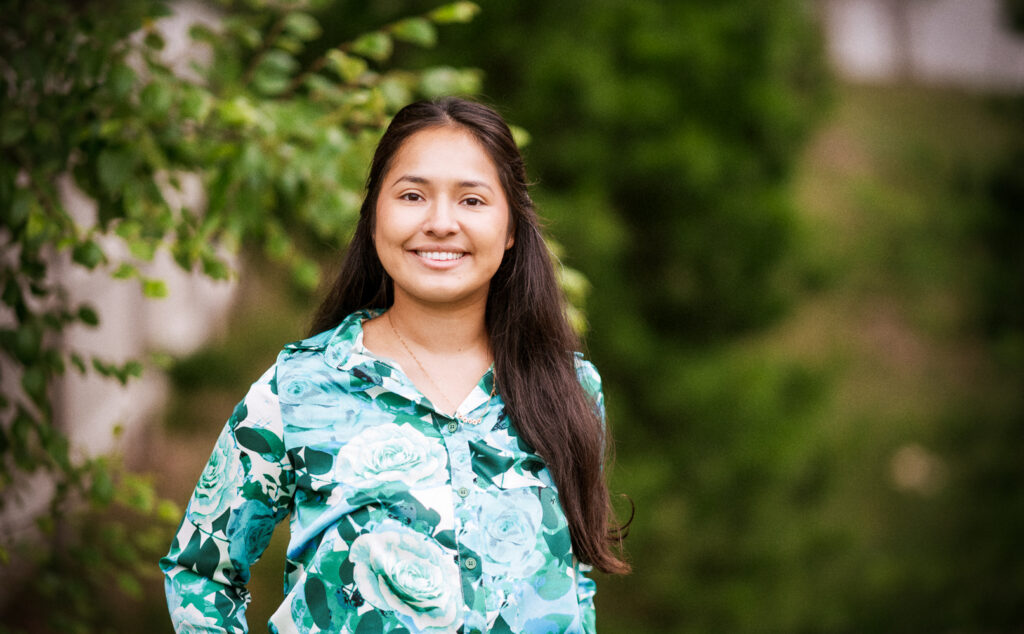
Making a policy surrounding the email signature line wasn’t a super novel idea, as many employees were already doing so, but it was a simple way to start.
Buch pointed out that the City of Cedar Rapids is still in the infancy of its DEI work, and focusing on pronouns first was “low-hanging fruit.”
Sometimes we forget that life, experiences and memories are built from very small moments and gestures. If we don’t capture those small gestures and moments, then it’s almost impossible to actually reach those very large, grand gestures.
- Elizabeth Buch (she/her)
That’s the approach the City of Cedar Rapids had when they held a Pride Flag raising ceremony at City Hall for the first time in the city’s 170-year history. The gesture stemmed from the idea that if the organization says it supports its marginalized groups, then people should see that in action.
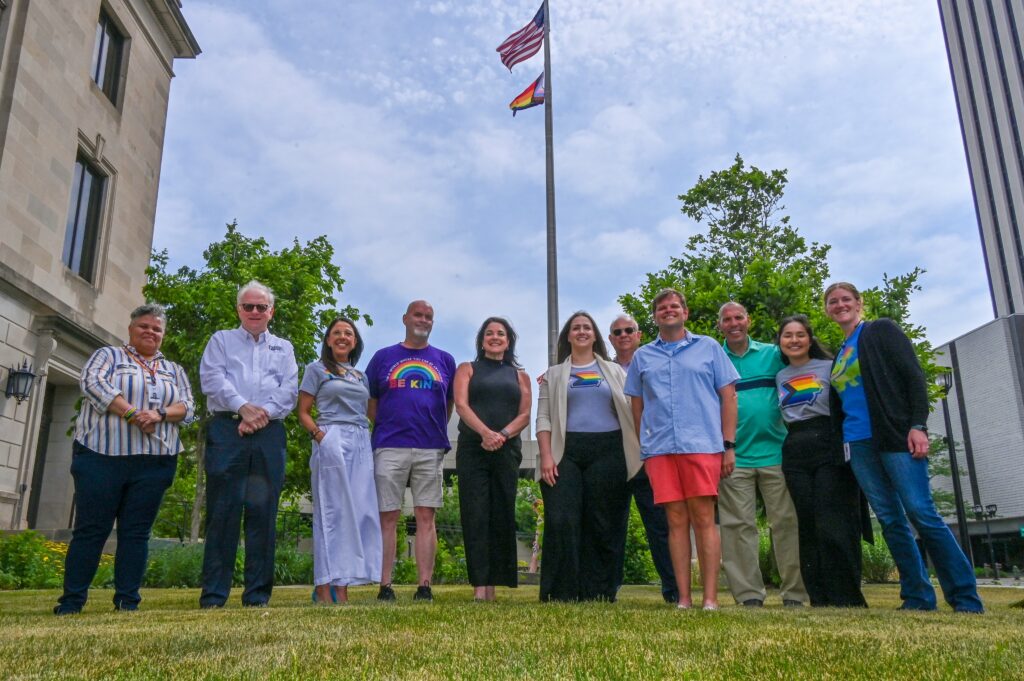
As we continued our discussions, what unfolded was a wave of learning, a wave of vulnerability with our top leadership team at the City of Cedar Rapids.
- Elizabeth Buch (she/her)
The team was excited to then carry forward their conversations surrounding DEI with the rest of the organization’s employee base of 1,400 by encouraging employees to ask questions and learn alongside each other, as well as implement DEI strategies within their own teams.
What’s resulted is positive actions, like highlighting local organizations that advance and advocate for marginalized populations.
Yet, Buch pointed out, the organization knows it still has a long way to go. And that’s OK.
Buch shared that one thing others in the room could do right away was ask their leadership team, “What are we doing to update policies that deal with inclusions? What can we do to advance this with an inclusive and equitable lens? What are we visibly doing to support marginalized populations?”
Those are simple tasks that can ripple into so many great actions for your organization and, in turn, create more lasting relationships with local community organizations and inside the workforce with your peers.
- Elizabeth Buch (she/her)
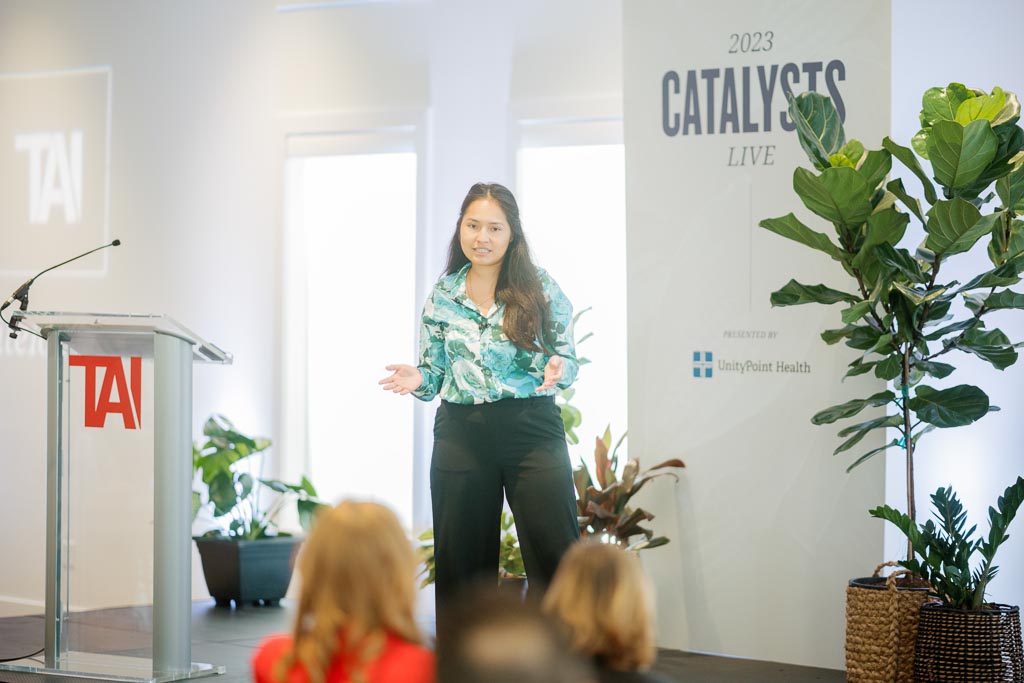
In addition, she mentioned that before stepping into a DEI journey, it’s vital that organizations have educated allies in their space and among the leadership team — people who will back up the changes being proposed.
Buch wrapped up her presentation by acknowledging that as organizations focus more on DEI within their workplace, they must remember that challenges will arise.
It’s not all rainbows and butterflies.
- Elizabeth Buch (she/her)
You may face disheartening comments and questions, and you may hear heart-wrenching stories from people who have long needed support as they’ve experienced marginalization.
But “If you have that foundation built, I think you’ll be able to step into it a bit more prepared [to face those challenges.]”

